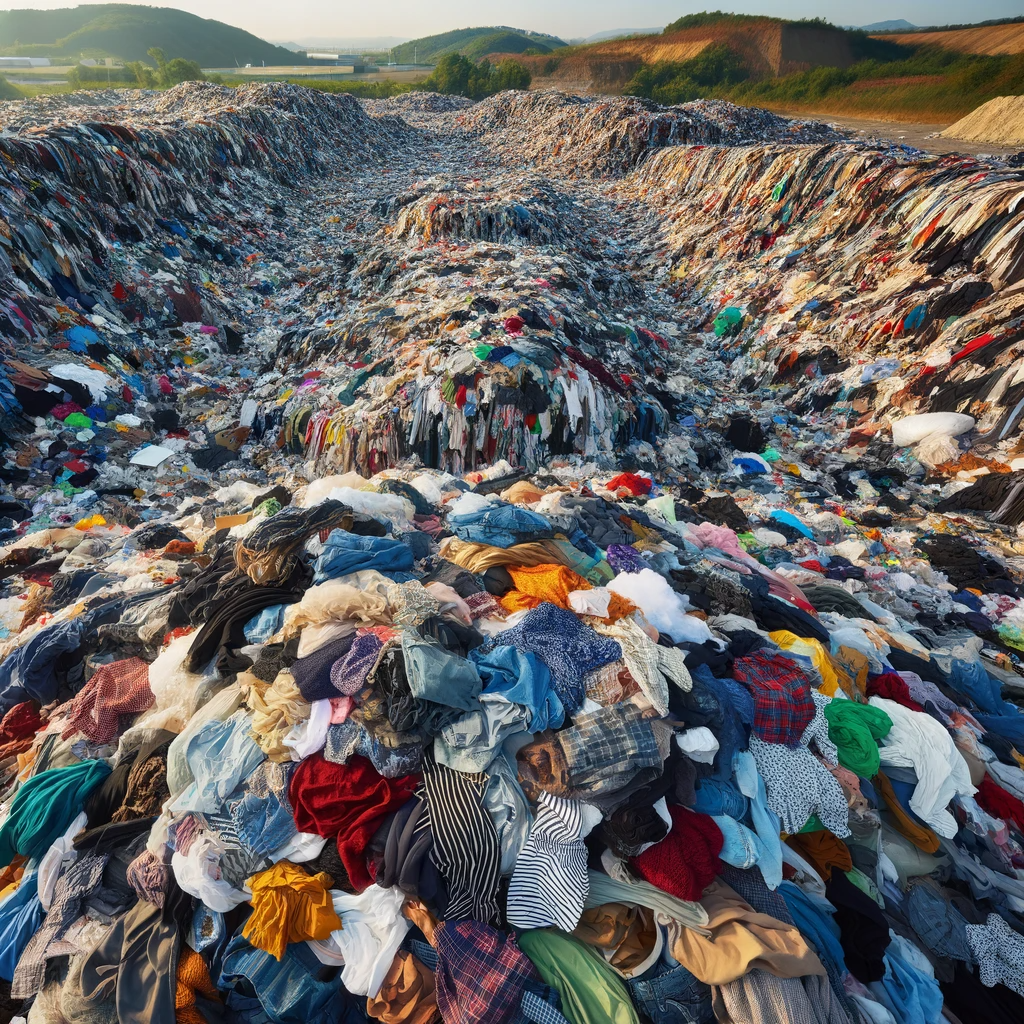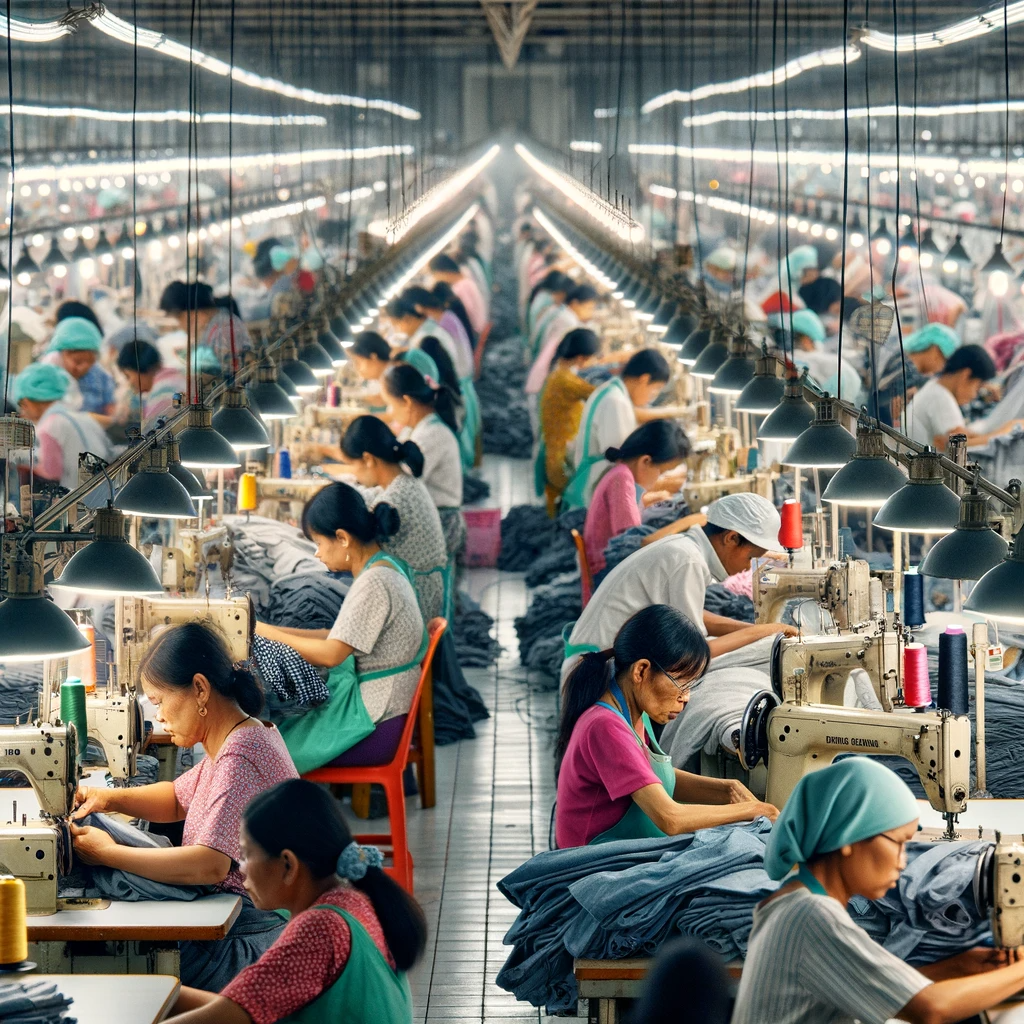Introduction
Fast fashion is a term that resonates with many in our modern, consumer-driven society. It refers to the rapid production of high volumes of clothing, replicating the latest fashion trends at an affordable price. However, this convenience and affordability come at a significant cost. Fast fashion is notorious for its detrimental effects on the environment, the exploitation of workers, and the economic implications of its waste.
In this article, we delve into three compelling reasons to bid farewell to fast fashion, highlighting the environmental, social, and economic impacts. Our goal is to offer a comprehensive understanding of these issues and inspire a shift towards more sustainable and ethical fashion choices.
Section 1: Environmental Impact

The Toll on Climate and Water
Fast fashion is a major contributor to climate change and water pollution. The industry is responsible for a significant portion of global carbon emissions due to the energy-intensive production processes. From the cultivation of raw materials like cotton, which is water and pesticide-intensive, to the manufacturing and shipping of garments, each step contributes to the overall carbon footprint.
Water Usage in Textile Production
- The textile industry is one of the largest consumers of water. Producing a single cotton shirt, for example, can require up to 2,700 liters of water.
- Dyeing processes used in manufacturing release toxic chemicals into water bodies, affecting aquatic life and the health of communities relying on these water sources.
Textile Waste Impact
- The fast fashion model encourages a throw-away culture, leading to enormous amounts of textile waste.
- In the U.S. alone, around 85% of all textiles end up in landfills each year.
- Synthetic fibers, like polyester, can take hundreds of years to decompose, releasing microplastics into the environment.
Section 2: Social Impact

Exploitation and Inequality in the Fast Fashion Industry
Fast fashion's appeal lies in its ability to provide trendy clothing at low costs. However, this affordability often comes at the expense of workers' rights and dignity. The industry is notorious for exploiting labor in countries with lax regulations, perpetuating a cycle of poverty and inequality.
Harsh Working Conditions in Fast Fashion Factories
- Workers in fast fashion factories often face long hours, unsafe conditions, and inadequate compensation.
- In countries like Bangladesh, Cambodia, and India, factory workers are sometimes forced to work in buildings with poor structural integrity, posing serious safety risks.
Prevalence of Abuse in the Garment Industry
- The fast fashion industry has been repeatedly criticized for the prevalence of sexual harassment and violence against workers, particularly women.
- A study conducted across various garment-producing countries revealed that more than 60% of workers had experienced some form of harassment or abuse in the workplace.
Statistics Highlighting Worker Exploitation
- In some countries, garment workers earn as little as $3 per day, far below a living wage.
- Reports suggest that less than 2% of the price of a fast fashion item goes towards the wages of the workers who made it.
The social impact of fast fashion is a stark reminder of the human cost behind our clothing. It underscores the need for more ethical production practices that prioritize worker rights and wellbeing.
Section 3: Economic Impact

The Wasteful Nature of Fast Fashion
Fast fashion's economic impact is characterized primarily by its contribution to consumer waste and unsustainable practices. The industry's business model thrives on encouraging constant consumption, leading to a cycle of buying and discarding that has far-reaching economic consequences.
Fast Fashion's Contribution to Waste
- The rapid turnover of trends in fast fashion results in consumers buying more clothes than ever before and discarding them just as quickly.
- This behavior leads to massive waste; for instance, it is estimated that in the UK, consumers throw away over 300,000 tonnes of used clothing each year.
Economic Implications for Consumers
- Fast fashion's low prices can be misleading, as the low-quality garments often have a shorter lifespan, necessitating frequent replacements.
- This cycle of continuous purchasing can ultimately lead to higher expenses for consumers in the long run.
Promoting Sustainable Practices
- Shifting towards buying less and opting for higher-quality, sustainable clothing can have a profound impact. It not only reduces waste but also supports businesses that are committed to ethical practices.
- Choosing quality over quantity can be more economical over time, as well-made clothes last longer, reducing the need for frequent replacements.
The Ripple Effect on the Fashion Industry
- Adopting sustainable and ethical practices in the fashion industry can promote more responsible consumption patterns.
- This shift can lead to a more balanced economic model that values quality, sustainability, and fairness over mere profit and volume.
The economic impact of fast fashion is a clear indicator that a change towards more sustainable and ethical practices is not just an environmental or social necessity but also an economic imperative.
Conclusion
Embracing Sustainable Fashion
The journey through the environmental, social, and economic impacts of fast fashion reveals a compelling case for change. By understanding these impacts, we can make more informed choices that align with sustainable and ethical values.
Call to Action
We encourage readers to reflect on their fashion choices and consider the broader implications of their purchases. By opting for sustainable and ethically produced garments, consumers can play a crucial role in driving positive change in the fashion industry.
Additional Resources
For those interested in exploring sustainable and ethical fashion further, here are some valuable resources:

